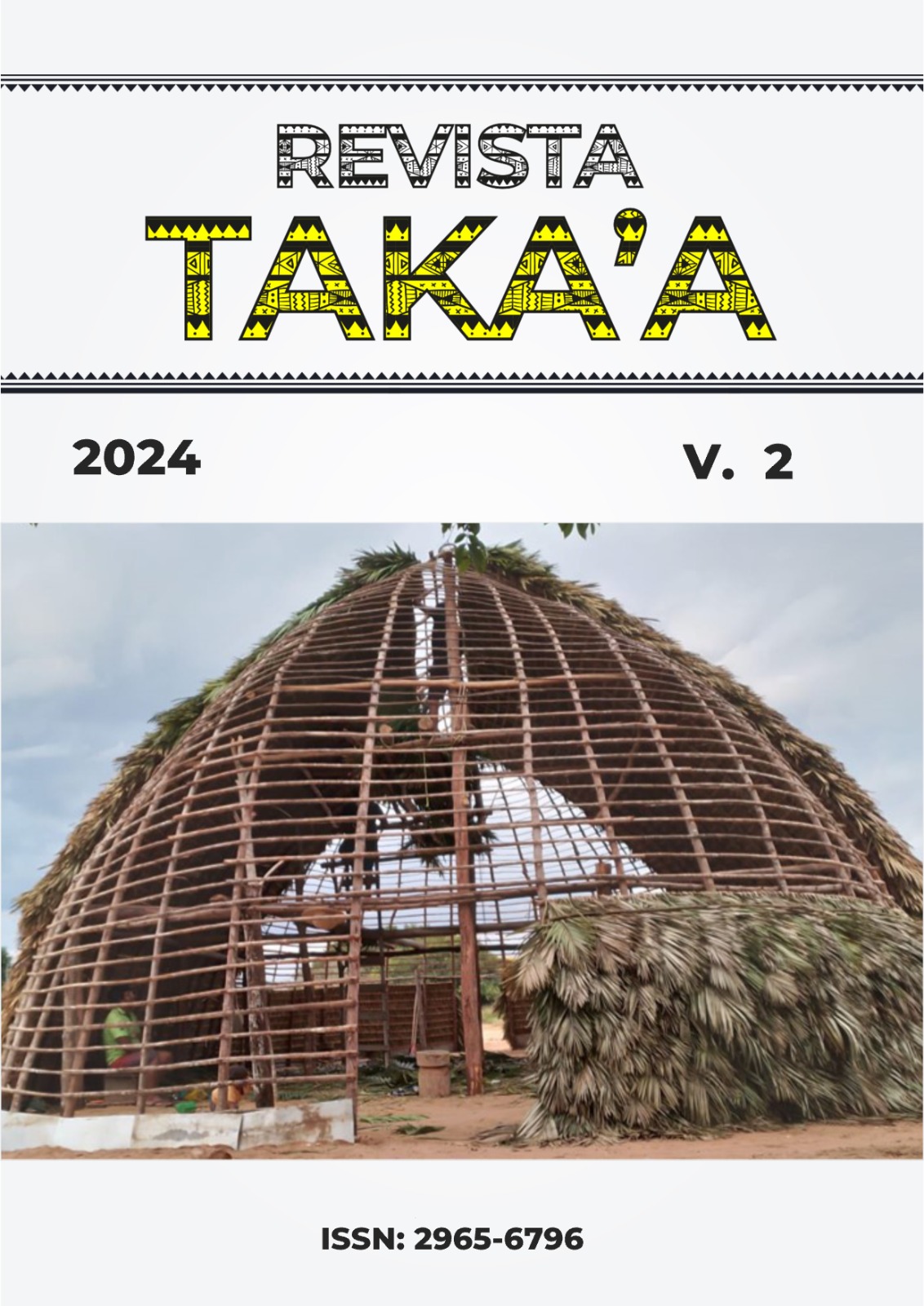SOCIOLINGUISTIC REALITY OF THE CHIQUITAN PEOPLE OF VILA NOVA BARBECHO VILLAGE
DOI:
https://doi.org/10.30681/rtakaa.v2i1.13219Keywords:
Revitalization of the Chiquitano Language, Cultural Strengthening, Vila Nova Barbecho VillageAbstract
This article deals with the sociolinguistic situation of the Chiquitano language in the village of Vila Nova Barbecho. The school is very important in the resumption of culture and language, as the partnership between the community, teachers and elders contributes to strengthening cultural and linguistic practices in the community and at school. The objective of this article is to discuss the situation of the language in the village and what actions can be developed to restore the language. The research methodology is qualitative and field-based. The investigation was carried out through a questionnaire and interviews with elders, parents, students and other people in the community. The results indicate that there are three elders who know the language, and when these elders meet or gather on a traditional festival day, they speak in the Chiquitano language, and this revitalizes our language and cultural knowledge.
Downloads
References
BRASIL. [Constituição (1988)]. Constituição da República Federativa do Brasil de 1988. Brasília, DF: Presidência da República, Disponível em: http://www.planalto.gov.br/ccivil_03/Constituicao/ Constituiçao.htm. Acesso em: 18 de nov.2024.
BRASIL. MEC. Resolução N.º 05. Diretrizes Curriculares da Educação Escolar Indígena. Conselho Nacional de Educação: Brasília, 2012. Disponível em: http://portal.mec.gov.br/rede-de-educacao-para-a-diversidade/323-secretarias-112877938/orgaos-vinculados-82187207/17417-ceb-2012 Acesso em: 18 de nov.2024.
CRUZ, Mônica Cidele da, QUINTINO, Wellington Pedrosa. Práticas comunitárias de revitalização linguística em aldeias indígenas de Mato Grosso. In: (Re)vitalizar línguas minorizadas e/ou ameaçadas: teorias, metodologias, pesquisas e experiências / organização - Patrícia Goulart Tondineli. - Porto Velho, RO: Coleção Pós Graduação da UNIR - EDUFRO, 2021.
MATO GROSSO. Resolução Normativa nº 001/2013-CEE/MT. Dispõe sobre a oferta obrigatória da Educação das Relações Étnicas e Raciais e do estudo da História e Cultura Afro-Brasileira, Africana e Indígena, nos estabelecimentos de Educação Básica, públicos e privados do Sistema Estadual de Ensino, e dá outras providências. Diário Oficial de Mato Grosso, Mato Grosso, p. 31, 2013.
MATO GROSSO. Projeto Político Pedagógico – PPP. Escola Estadual Indígena Chiquitano José Turíbio, Aldeia Vila Nova Barbecho. 2024.
PAULA, Eunice Dias de; TAPIRAPÉ, Josimar Xawapare’ymi. Revitalização de línguas indígenas no Brasil: o caso dos Apyãwa. Revista Linguística / Revista do Programa de Pós-Graduação em Linguística da Universidade Federal do Rio de Janeiro. Volume 13, n.1 jan de 2017, p. 215-230. ISSN 2238-975X 1. [https://revistas.ufrj.br/index.php/rl]
TAPIRAPÉ, Klebson Awararawoo’i. CRUZ, Mônica Cidele da. Roça tradicional como política de fortalecimento da língua Apyãwa. Revista Taka’a, Barra do Bugres (MT), v. 1, e2023008, 2023. Disponível em: https://periodicos.unemat.br/index.php/rtakaa/article/view/12560/8496
Acesso em 17 dez.2024.








